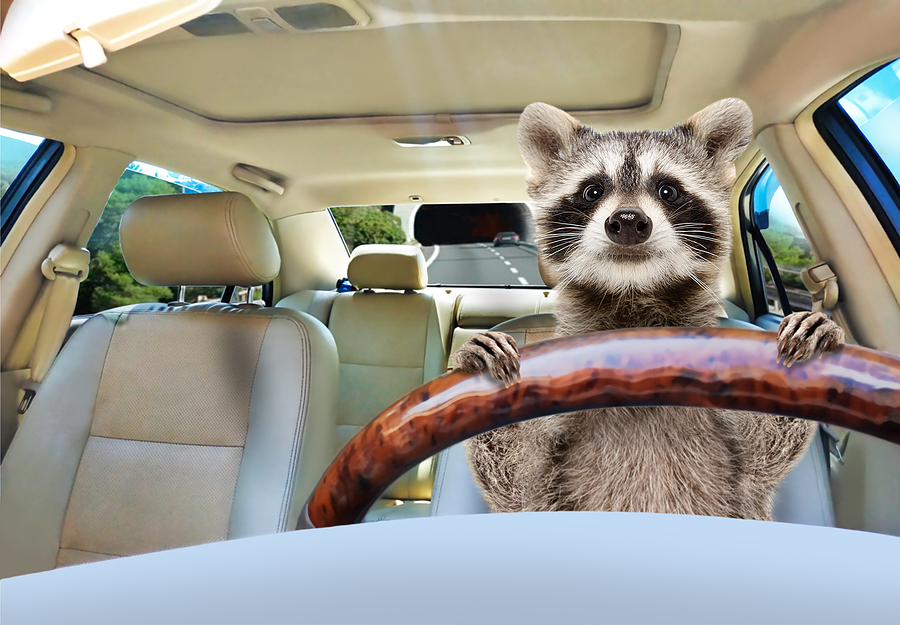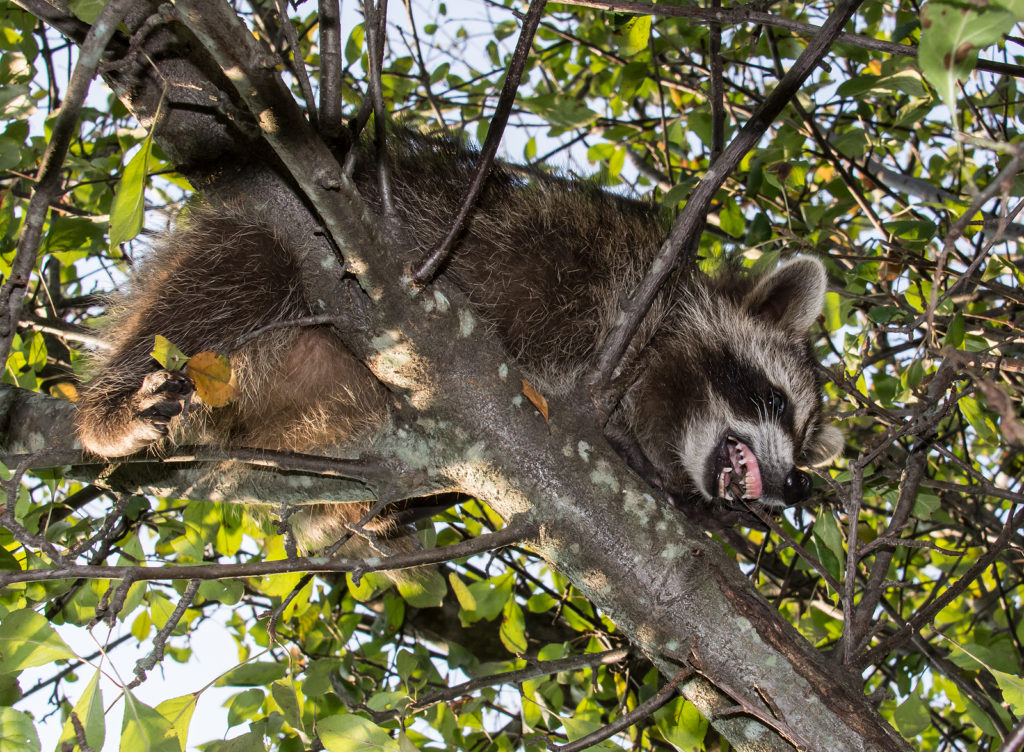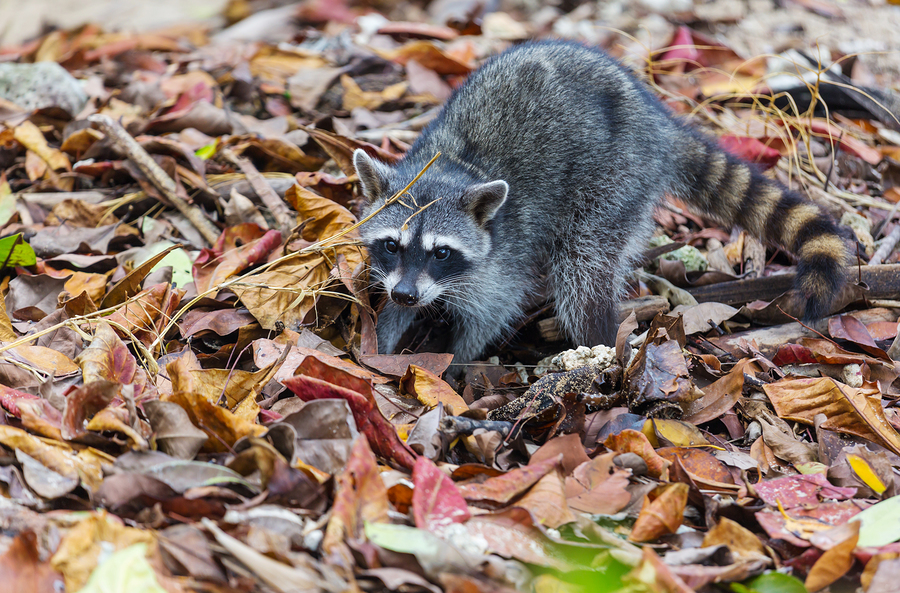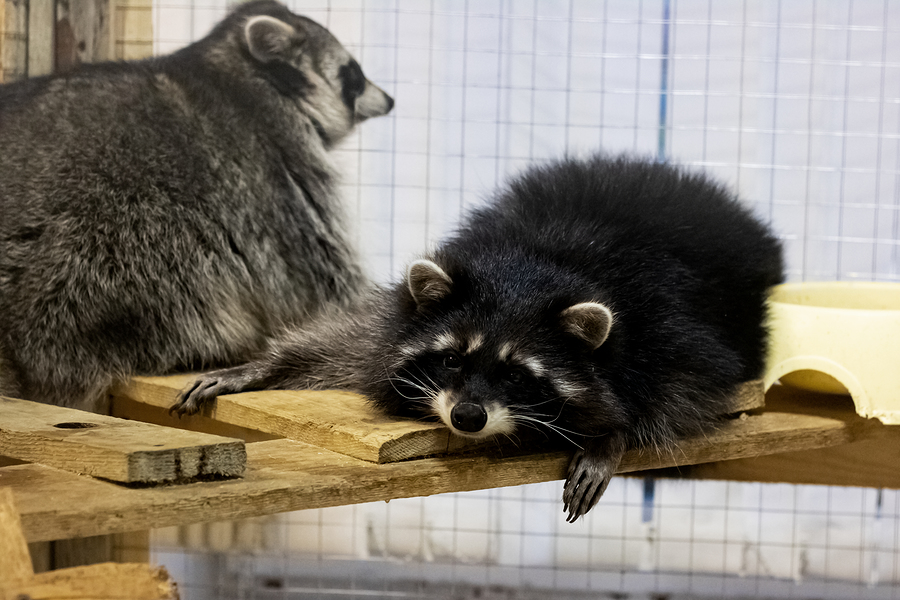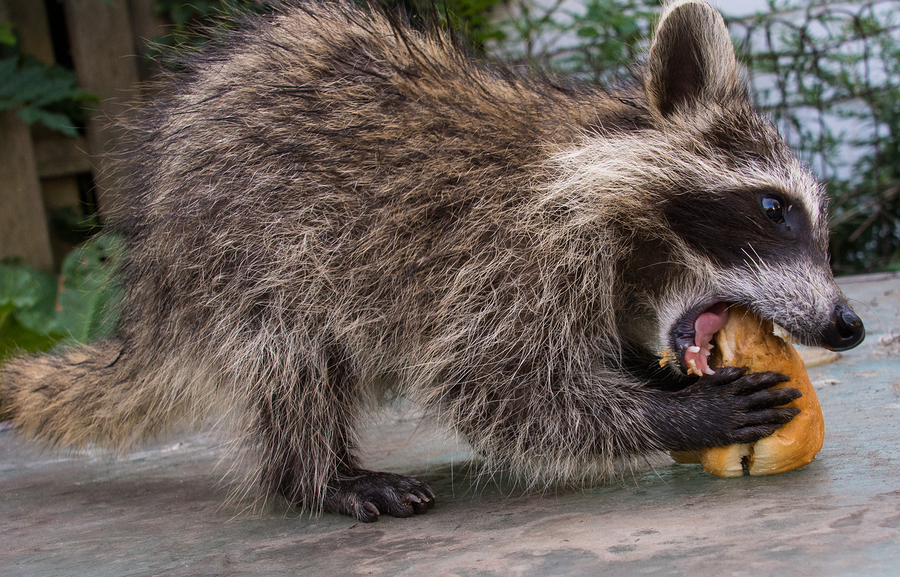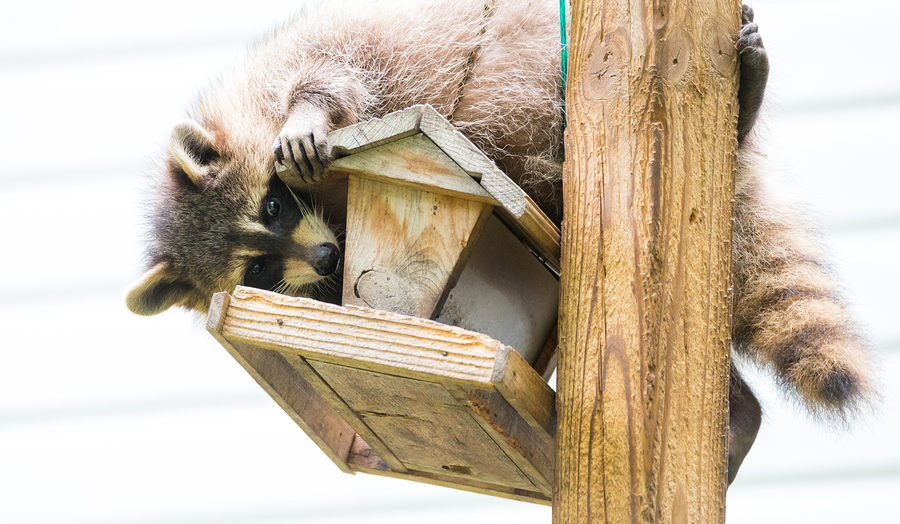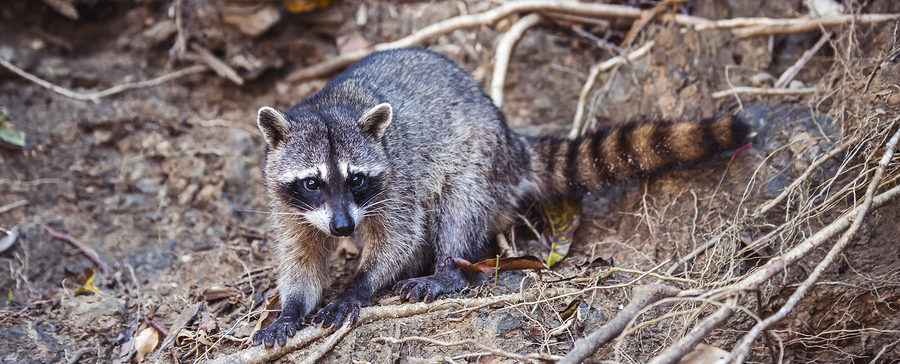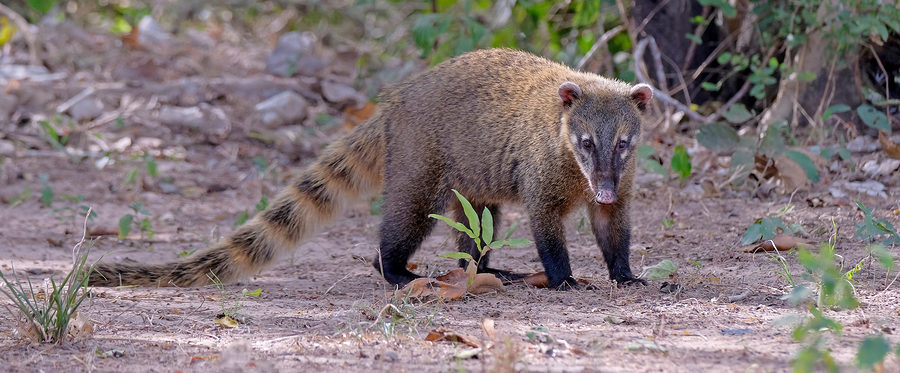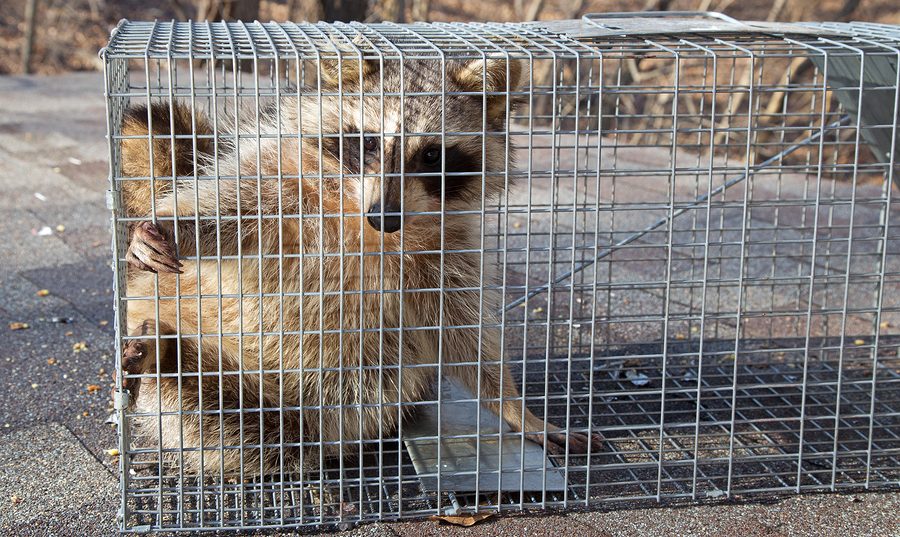For homes located in rural areas or near wooded areas, this season is all about pest control. One of the most common nuisance animals to watch out for in the fall time is the wild raccoon. Continue reading to learn more about raccoon activity this time of year, and what to expect from raccoons as crepuscular and nocturnal foragers.
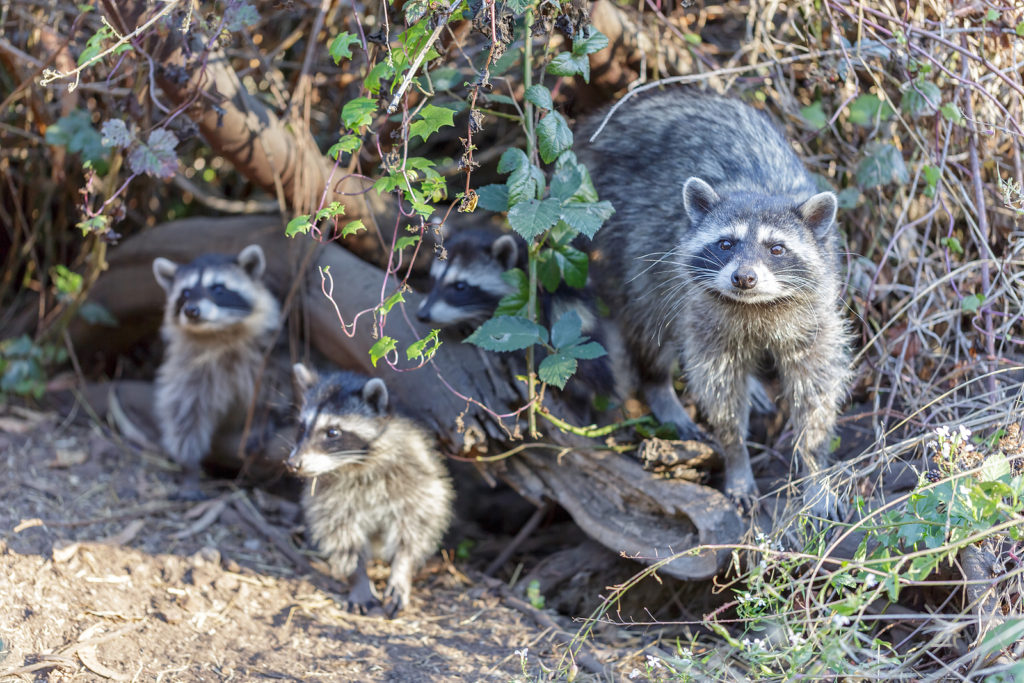
Crepuscular and Nocturnal Foragers
This time of year, raccoons are looking for more than just food; they are also in search of dens and shelter to mate and breed their young. Generally, raccoons do most of their hunting and foraging at night, since they are nocturnal mammals. But now that temperatures are slowly becoming colder, raccoons will start to do their hunting and foraging earlier than before. The term, “crepuscular” simply refers to the twilight time before the sun fully sets. So when they are referred to as crepuscular foragers, it is being implied that they start their food hunt earlier in the evening than in spring and summer.
Some people are afraid when they spot raccoons out before the sun has set, since one of the most obvious signs of rabies is a raccoon out during the day. But twilight foraging is much different from daytime wandering, and does not indicate an infection at all. This does not mean you should attempt to touch or come into contact with a wild raccoon. Although they may be not be infected with rabies, they are known carriers of the virus, as well as, several other infection and unpleasant diseases.
If you are seeing raccoons on your property during twilight and evening hours, and they are beginning to become a threat to your property, it is time to call a local wildlife control company. They retain the proper tools and training to safely remove raccoons from interior areas of a property, as well as, inhibit raccoon trespassing and more. Be sure to choose a company that only uses non-lethal and humane methods of raccoon extraction and exclusion. And never attempt to trap, catch, or kill a raccoon under any circumstances.
Indianapolis Raccoon Removal You Can Trust
Call 317-535-4605 for Indianapolis raccoon removal services you can trust. We are DNR licensed and insured nuisance wildlife removal contractors who offer a wide range of 24 hour raccoon removal and control services, including raccoon cleanup, raccoon proofing, minor restorations for raccoon damages, and more. Call 317-535-4605 to request a free estimate or emergency service, today.


